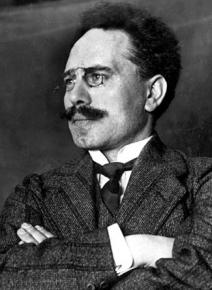Liebknecht’s letter to Zimmerwald
The Zimmerwald Conference, a small gathering held in Switzerland 100 years ago, on September 5-8, 1915, marked a turning point in the world socialist movement. Socialists from many countries issued an appeal that united an antiwar resistance to the First World War and helped prepare the revolutions with which the war concluded.
On the first day of the conference, a letter from imprisoned German revolutionary Karl Liebknecht was read out and received with great enthusiasm. Liebknecht had won fame among workers across Europe in December 1914 as the first German parliamentary deputy to vote against war credits. The letter was translated from conference proceedings by John Riddell, editor of the SocialistWorker.org series marking the 100-year anniversary of the war. Also included in the series is Riddell's introduction to the Zimmerwald conference, as well as two other documents from the meeting: "Resolution of the Zimmerwald Left" and "The Zimmerwald Manifesto."
FORGIVE ME for writing only these few hurried lines.
Imprisoned and shackled as I am by militarism, I cannot come to be with you. Still my heart, my mind, my entire spirit is with you.
You have two solemn tasks, one arising from stern duty and the other from sacred enthusiasm and hope:
An inexorable settling of accounts with the deserters and turncoats of the International in Germany, Britain, France, and elsewhere.
Mutual understanding, encouragement and a stimulus for those who are true to their banner and determined not to cede an inch to international imperialism, even if they are cut down. And Ordnung (order)[1] in the ranks of those who are determined to hold on, stand firm and struggle, with their feet firmly planted on the foundations of international socialism.
The principles of our attitude to the world war can be briefly explained as a special case of our view of the capitalist social order. Briefly, I hope, since all of us, all of you are and must be united in this.
The task is above all to lay down the practical conclusions flowing from these principles, and to do so unwaveringly in every country.

Not civil peace but civil war![2]
International solidarity of the proletariat above and against pseudo-national and pseudo-patriotic harmony among classes. International class struggle above and against the war among states. International class struggle for peace, for socialist revolution.
How should this struggle be waged? That is what we must determine. Developing the necessary forces and directing them to feasible goals can only be achieved through collaboration, through actions reinforcing each other in each country and building up each other's strength.
Our friends in each country hold in their hands the hopes and prospects of their friends in every other country. French and German socialists, above all, you hold in your hands each other's fate. Friends in France, I implore you, do not fall into the trap of national unity slogans. You are immune to their appeal! But also you must not be trapped by the equally dangerous slogan of party unity.
Every protest against pro-government politics, every sign that you reject it, every bold avowal of the class struggle and of solidarity with us, with the proletarian will for peace, reinforces our fighting spirit and increases our strength ten times over. In the same way, we in Germany strive on behalf of the world proletariat and for its economic and political liberation from the shackles of capitalism--and from those of Tsarism, Kaiserism, Junkerism[3] and militarism, and--what is more--from international militarism.
In Germany we struggle for the political and social liberation of the German people, against German imperialism's power and lust for territory, for a peace that will restore unfortunate Belgium, wedged into Europe's heart, to its independence and freedom, while giving France back to the French people.
Brothers in France, we are well aware of the exceptional difficulties of your unhappy condition and we bleed with you as with the tormented and tortured masses of all peoples. Your misfortune is ours just as, we know, that our pain is yours.
May our struggle be yours as well. Help us, just as we vow to help you.
The new International will rise on the ruins of the old; indeed, it can arise only on these ruins and on new and more solid foundations. Friends, socialists of every country, today you must lay the foundation stone for the structure of the future. Pronounce irreconcilable judgment on the false socialists. Drive the waverers and doubters forward unwaveringly in every country, and especially in Germany.
The greatness of our goal will lift you above the limitations and confinements of the moment and above the sufferings of these terrible times.
Long live the future peace among peoples! Long live anti-militarism! Long live socialism--internationalist, liberating the peoples, and revolutionary!
Proletarians of all countries, unite once again!
Notes
Translated from Horst Lademacher, ed., Die Zimmerwalder Bewegung. The Hague: Mouton, 1967, pp. 55-56. Italics are as in original text.
1. The German word Ordnung (order) is defined in a major German dictionary of that time as "A systematic and effective succession of a series of things or actions based on a specific guiding point of view." Meyers Grosses Konversations-Lexikon, 1905-09.
2. "Civil peace" [Burgfrieden] signified that the workers' organizations would suspend their struggle against the capitalist class for the duration of the war; the call for "civil war" meant that this struggle should be resumed and waged by any means necessary.
3. The Kaiser was the emperor of Germany; the junkers were the German landed aristocracy.


